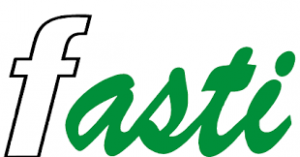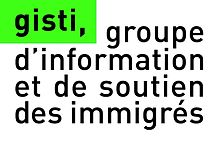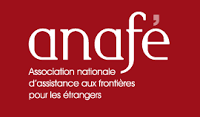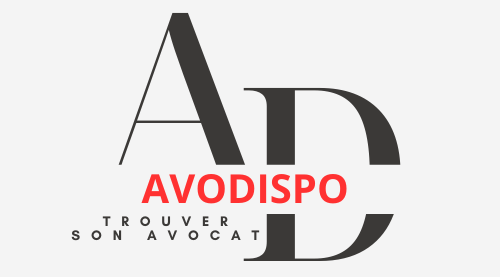Accès à une consultation juridique gratuite
- Admin AVODISPO
- ATLAS AVOCAT

What are the free access points to legal assistance? State organizations.

ATLAS Avocat
In France, the right to information is considered a fundamental right. The State and its administrations must ensure its respect by providing free access points to free legal advice for its citizens.
Access through state organizations:
1. The Conseil Départemental de l’Accès au Droit (CDAD) :
To help people understand the law and obtain legal assistance, the government has established an organization called the Departmental Council of Legal Access (CDAD). This organization comprises local authorities, judges, lawyers, notaries, bailiffs, and associations. The CDAD operates in each department to identify local needs, organize events such as forums and open days to help people better understand the law, and assess the effectiveness of these efforts. There is a CDAD in each department of France, and some have a website listing places where you can get legal assistance in your area.
2. Points-Justice:
Points-Justice are places where people can obtain free information about their rights and responsibilities if they have legal or administrative issues.
You can recognize them easily thanks to their logo and find them in various places such as community centers, public services, prisons, etc.
Legal professionals, associations, conciliators of justice, and delegates from the Defender of Rights manage these Points-Justice. They can be open to all or reserved for specific groups of people depending on their needs. Since December 2020, Points-Justice has replaced access points to legal advice and justice centers.
3. Maisons de la Justice et du Droit:
Since December 2020, 148 Maisons de Justice et du Droit have become part of the point-justice network, focusing on legal access.
These houses are places where people can obtain free, confidential information on their rights and obligations.
Legal access agents are available to welcome and guide visitors, and they organize drop-in sessions to address various aspects of everyday life (family law, labor law, housing law, consumer law, etc.)
The mission of the Maisons de Justice et du droit (law centers) is to provide a public justice service by helping people gain access to the law, resolve disputes amicably, assist victims, and provide local justice to prevent and deal with minor offenses. The clerks at these « Points-Justice » have access to the SAUJ (Service d’Accueil Unique du Justiciable) portal to keep litigants informed of the progress of their civil proceedings. In short, the « Maisons de Justice et du droit » provides a local judicial presence to help citizens in civil, criminal, and juvenile justice matters.
The common aim of these three structures is to facilitate citizens’ access to legal and administrative information. They help people in need to understand their rights and obligations and to find solutions to their problems while promoting local justice and the amicable resolution of disputes.
4. Associations
In addition to these structures, you can obtain legal advice from various associations and organizations that help people.
An association is a group of volunteers who come together for a shared project or activities driven by a non-profit motive. They can also guide you through your rights or refer you to professionals when needed.
In addition to legal advice, some associations accompany you free of charge in legal disputes or when filing a petition before a court and help you find a lawyer. Often, these associations work with ‘partner’ professionals within their structure, ensuring that the recommended lawyer is qualified for your case. However, please note that the association doesn’t employ these lawyers. The lawyers work independently and charge fees once you agree to use their services.
Some examples of organizations that can support you in the field of immigration law are:
- CIMADE (Comité Inter-Mouvements auprès des Évacués) :
An association founded on October 18, 1939, shortly after the outbreak of WW2, to provide active solidarity and political support to migrants, refugees, displaced persons, asylum seekers, and undocumented foreigners.

- FASTI (Fédération des Associations de Solidarité) :
A federation of associations founded in 1967 that support all immigrants in France, defined as feminist, anti-capitalist, and Third Worldist. It calls for freedom of movement and settlement, the right to vote for all, cancellation of Third World debt, and equality between men and women.

- GISTI (Groupe d’information et de soutien des immigrés) :
A non-profit association fonded in 1972 that provides legal assistance and support to foreigners in France.

- Forum Réfugiés :
An association that advocates for the reception of refugees and the defense of asylum rights in France and abroad.

- ANAFÉ (Association Nationale d’Assistance aux Frontières pour les Étrangers) :
An independent association founded in 1989 that assists foreigners who are not admitted to French territory, whether asylum seekers or not, and ensures respect for the guarantees provided by law.

Trade unions (les Syndicats)
As mentioned earlier, turning to a syndicate is an option to obtain legal advice. A trade union is an association of people whose purpose is to defend their professional interests. It is essential to differentiate between a trade union and an association, as their governing laws provide different competencies and obligations.
Examples of trade unions in France are:
- CGT:(Confédération générale du travail): A French trade union founded on September 23, 1895, in Limoges.
- CFDT: (Confédération française démocratique du travail): An interprofessional reformist trade union in France, created in 1919.
- FO: A French trade union founded in 1947. It is the third-largest trade union organization, behind the CFDT and CGT.
Whether through Points-Justice, associations, or trade unions, you can obtain free legal advice from them in most cases. If necessary, they can refer you to a more qualified professional.
Conclusion
Searching for legal information can be challenging, given the numerous sources available on the internet. Remember that the reliability of information is dependent on where it comes from. We have briefly detailed the various possible sources of information regarding your rights in France. Please note that we do not recommend seeking advice from family or social networks or relying on situations of people who may have experienced « similar situations. » Every case is unique, and seeking personalized legal advice is in your best interest. That’s the point of these consultation points, whether access-free or not, available in France.
So, if you need advice, do not hesitate to seek help.
Partager avec :
Plus d'articles
Se protéger de la violence conjugale avec l’aide de la justice !
Paris [04/09/2023], La lutte contre la violence conjugale est une priorité en France. Cet article examine en profondeur les mesures légales et judiciaires disponibles pour
Porter plainte pour coups et blessures : comment aborder le sujet avec un avocat ?
Paris [04/09/2023], Porter plainte pour coups et blessures est une étape cruciale pour obtenir justice en cas d’agression. Cet article explore en profondeur la manière
Retrait de permis suite à un contrôle routier : les recours possibles pour obtenir une annulation
Paris le [30/08/2023], Le droit en France offre des recours pour les conducteurs dont le permis a été retiré à la suite d’un contrôle routier.
Je suis sans papiers. Est-ce que je peux avoir une aide juridictionnelle ?
Faire valoir ses droits en justice engendre des frais, mais pour les personnes qui ne peuvent pas avancer ces frais, l’état propose une aide au

